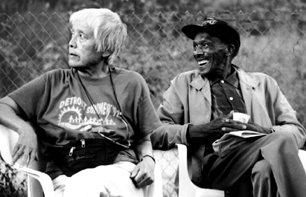Facing Reality by Grace C. Lee, Pierre Chaulieu, and J.R. Johnson
Few folks are aware of Grace Lee Boggs’ works while she was in a small organization called Correspondence. Although Correspondence was never a large organization, it had an extremely productive existence as a center, which produced some of the most exciting ideas about its own time and what libertarian-socialism/ anarchism might look like in the future.
One key text Correspondence produced was Facing Reality. Correspondence was inspired by the events of the Hungarian revolution in 1956. This revolution was critical for them because they saw the working class come to power not by the means of seizing state power, but by directly taking over factories. This gave them a breath of fresh air on what alternative visions of socialism might look like. It verified their belief that the socialism practiced in
This might seem to be arcane Russian and Hungarian history considering the fall of Russian communism happened almost two decades ago. But the continuing debates about
This is where Facing Reality’s insights are so critical. We cannot separate those gains from the fact that working people must control the healthcare clinics, their workplaces, their own community patrols, to name a few of the powers that normal people like you and I are capable of administering without professional politicians, managers, or NGO-types. This might seem like a pie in the sky idea, but just look at who is fighting the liberation struggles today: normal people, sometimes with no high school diplomas, let alone college degrees. Looking at the liberation struggles in the





